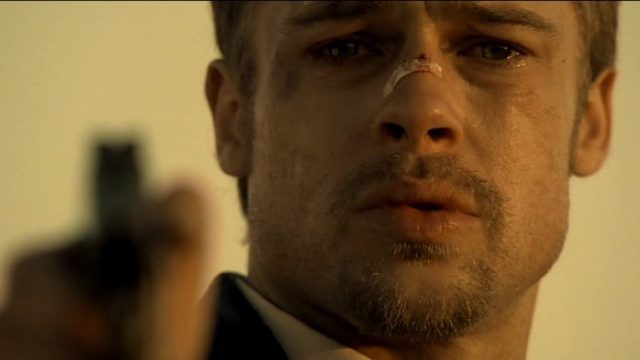Having grown up on classical culture, especially music, has skewed my perspective on pop culture. The distinction of classical culture is that (duh doy) it’s been around for a while; there has been a long process of refining it, and only some works have survived, what George Orwell called the only true test of art. When I start reading Moby-Dick or head off to the Emerson String Quartet, I do so with a certain amount of trust; not so much trust that I’ll like it but that there’s something worth my time. I’ve been grateful for that; Beethoven’s Ninth Symphony was an example of a work that took me a lot of listenings to fully get into–especially that insane third movement, which I now think of as the precursor to Brian Eno’s career.
This has left me with a fair amount of indifference to the cultural conversation, because at my age, I’ve heard a lot of them, participated in a few, and not all of them have lasted. (Who can forget the fear, back in 1979, that Persis Khambatta’s shaved head was going to split America apart? Apparently just about everyone.) These conversations are valuable, necessary even; they determine how people see themselves as part of the broad, messy world of meaning. (That last phrase is a good definition of “culture.”) These conversations determine how we matter to each other, and that’s only going to be more important right now; we are all fortunate that we have writers, especially on The Solute, who are better than me at participating in that conversation. Art and culture are not quite the same thing, though; almost by definition, a great work of art is one that survives outside its conversation, one whose meaning exists past its context. And every now and then, pop culture gives us one of those with no warning at all.
That’s the great and unique thing about pop culture: the unexpected masterpiece. It’s the opposite of the classical work that takes effort to fully appreciate: this is the work of right now, the thing we never saw coming, the thing that out of nowhere connects us not just to now but to the past and future. Spike Lee’s Clockers, ER‘s “Love’s Labor Lost,” and the end of the second season of The Shield are on my personal list, but the one that heads it is Seven. I was one of the few people who loved Alien³ despite its glaring flaws, so I walked into the theater on a weekday afternoon thinking I’d get a good movie and that wasn’t even close to what happened. I didn’t come home until about five hours later, because I needed at least two hours of walking in the Southern California sun to get the chill out of my bones. I had seen something not rooted in any of the important questions of 1995 but something about our lives, how we tell stories, and most of all the horrible strength and weakness of our bodies. 20 years later, the conversations have changed, and they should, but the things that made Seven work haven’t, and they won’t.
So, everyone, what are your unexpected masterpieces? What are the films you saw and knew instantly they were built to last?

